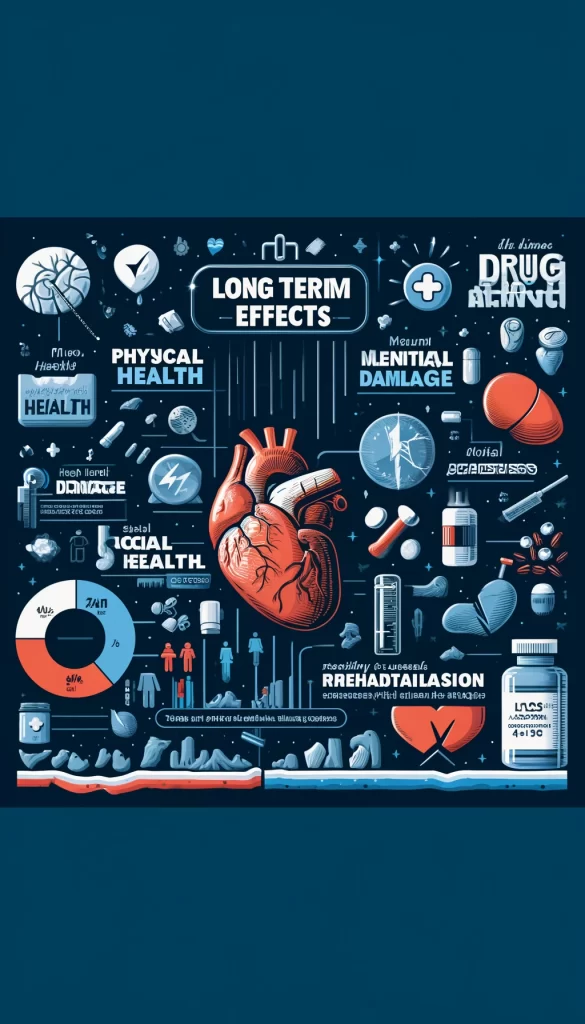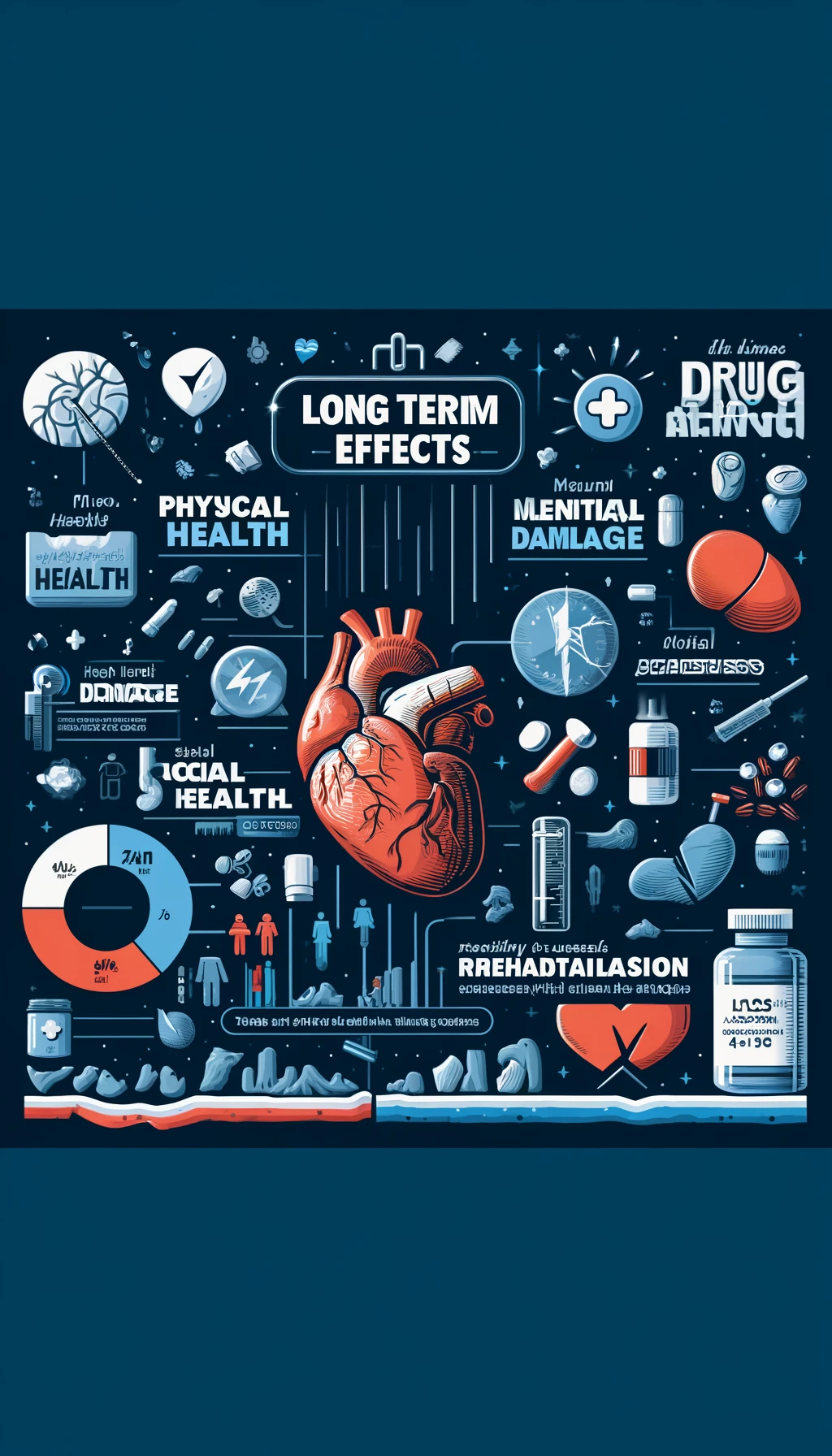
Drug addiction is a chronic, relapsing brain disease characterized by compulsive drug seeking and use, despite harmful consequences. It’s far more than just a bad habit; it’s a complex condition with a devastating impact on individuals, families, and society as a whole. The long-term effects of drug addiction extend far beyond the initial high, leaving a trail of destruction on physical and mental health, relationships, finances, and legal standing.
This paper delves into the multifaceted consequences of drug addiction, exploring its impact on various aspects of life.
Physical Health:
Drugs wreak havoc on the body, causing a multitude of long-term health problems. The specific effects depend on the type of drug used, duration of use, and individual factors. Here’s a glimpse into some of the common consequences:
- Brain Damage: Chronic drug use alters brain structure and function. Disruptions occur in the reward system, leading to cravings and making it difficult to quit. Cognitive decline, impaired memory, and difficulty learning are also common.
- Organ Damage: Livers, hearts, lungs, and kidneys all suffer from prolonged exposure to drugs. Cirrhosis, heart disease, respiratory problems, and kidney failure are potential consequences.
- Infectious Diseases: Sharing needles and risky sexual behavior associated with drug use can lead to the transmission of HIV, hepatitis B and C, and other infectious diseases.
- Nutritional Deficiencies: Drug use often disrupts healthy eating habits, leading to malnutrition and deficiencies in vitamins and minerals. This weakens the immune system and makes the body more susceptible to infections.
Mental Health:
The impact of drug addiction on mental health is profound. Addiction and mental health issues often co-occur, creating a vicious cycle. Here’s how drug use can affect mental well-being:
- Mental Disorders: Drug use can trigger or worsen mental health conditions like anxiety, depression, bipolar disorder, and schizophrenia.
- Psychosis: Certain drugs like stimulants and hallucinogens can induce psychosis, characterized by hallucinations and delusions.
- Suicidal Thoughts and Behaviors: Addiction can lead to feelings of hopelessness and despair, increasing the risk of suicidal thoughts and attempts.
Relationships:
Drug addiction severs the threads that bind us to loved ones. The following are some of the ways addiction damages relationships:
- Broken Trust: Lying and manipulation to obtain drugs erode trust within families and friendships.
- Neglect: Addiction often leads to a neglect of responsibilities towards family and friends.
- Domestic Violence: Drug use can increase aggression and contribute to domestic violence.
- Social Isolation: Shame and secrecy associated with addiction can lead to social isolation.
Finances:
Drug addiction creates a significant financial burden. Here’s how it impacts an individual’s financial well-being:
- Cost of Drugs: Obtaining drugs can be quite expensive, leading to financial strain and even resorting to crime to support the habit.
- Job Loss: Addiction can affect performance at work, leading to job loss and lost income.
- Debt: Medical bills, legal fees, and the cost of supporting the addiction can lead to significant debt accumulation.
- Loss of Assets: People with addiction may sell belongings or even take out loans to support their drug use, leading to significant financial losses.
Legal Issues:
Drug use can lead to a multitude of legal problems, including:
- Possession Charges: Possession of illegal drugs is a crime and can result in arrest and incarceration.
- DUIs: Driving under the influence of drugs can have serious legal consequences.
- Theft and Fraud: People with addiction may resort to theft or fraud to obtain money for drugs.
- Probation and Parole Violations: Violations of probation or parole conditions related to drug use can lead to further legal trouble.
The Road to Recovery:
Despite the daunting consequences, there is hope. Effective treatment programs can help individuals overcome addiction and rebuild their lives. Here are some key aspects of recovery:
- Detoxification: The first step often involves medically supervised detoxification to manage withdrawal symptoms.
- Therapy: Addiction treatment includes various forms of therapy like cognitive behavioral therapy (CBT) to address the underlying causes of addiction and develop coping mechanisms.
- Support Groups: Connecting with others who are in recovery can provide invaluable support and encouragement.
- Relapse Prevention: Learning strategies to avoid relapse is crucial for long-term recovery.
Conclusion:
Drug addiction is a complex problem with far-reaching consequences. However, it’s important to remember that addiction is treatable. By understanding the long-term effects and seeking help, individuals can reclaim their lives and build a healthier future. If you or someone you know is struggling with drug addiction.



